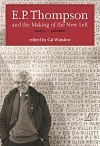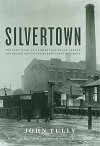Movements
The Striking Workers of Faisalabad, Pakistan
The government and the bosses go hand-in-hand; more often than not, the bosses are the government.…today’s Pakistani elite are incestuously interconnected via family relations and marriages with a large patronage network of squabbling, but self-serving, interest groups. Their rationale is to keep the country and its resources for themselves: they negotiate among themselves and take the spoils from any sales to the international elite.… Against these latter-day pharaohs stand the conscious and spirited workers.… Mian Qayyum, Bawa Lalif Ansari, and Muhammad Rana [are contemporary narrators of their struggle]. | more…
Standardized testing has become central to education policy in the United States. After dramatically expanding in the wake of the No Child Left Behind Act, testing has been further enshrined by the Obama administration’s $3.4 billion “Race to the Top” grants. Given the ongoing debate over these policies, it might be useful to hear about the experiences of a hidden sector of the education workforce: those of us who make our living scoring these tests. | more…
Hester Eisenstein, Feminism Seduced: How Global Elites Use Women’s Labor and Ideas to Exploit the World (Boulder, CO: Paradigm Publishers, 2010), 272 pages, $26.95, paperback.
Feminism Seduced, written for a general audience, presents a powerful, historically grounded critique of liberal feminism. Drawing on three decades of writing by socialist/Marxist feminists and women-of-color feminists, Eisenstein weaves a compelling account of how the central ideas of “hegemonic feminism” have legitimized the corporate capitalist assault on the working class in the United States and on small farmers and workers, both urban and rural, in the global South.… However, when Eisenstein moves from critique to offering an alternative strategy, she only recycles dualisms that have, as she acknowledges, bedeviled the women’s movement for well over one hundred years. | more…
Organizing immigrant communities is not a matter of taking pity on the downtrodden. It is a matter of understanding what is necessary for the survival of our communities, of our labor movement. If we are serious in wanting to build political power, then we must incorporate migrant workers, fight for their rights, and make the movement for social justice one that belongs to all of us, documented and undocumented. | more…

The essays in this book, many of which are either out-of-print or difficult to obtain, were written between 1955 and 1963 during one of the most fertile periods of E. P. Thompson’s intellectual and political life, when he wrote his two great works, The Making of the English Working Class and William Morris: Romantic to Revolutionary. They reveal Thompson’s insistence on the vitality of a humanistic and democratic socialism along with the value of utopian thinking in radical politics. Throughout, Thompson struggles to open a space independent of official Communist Parties and reformist Social Democratic Parties, opposing them with a vision of socialism built from the bottom up. Editor Cal Winslow, who studied with Thompson, provides context for the essays in a detailed introduction and reminds us why this eloquent and inspiring voice remains so relevant to us today. | more…
In the eyes of much of the world, the year 1989 has come to stand for the fall of the Berlin Wall, the demise of Soviet-type societies, and the defeat of twentieth-century socialism. However, 1989 for many others, particularly in Spanish-speaking countries, is also associated with the beginning of the Latin American revolt against neoliberal shock therapy and the emergence in the years that followed of a “socialism for the 21st century.” This revolutionary turning point in Latin American (and world) history is known as the Caracazo or Sacudón (heavy riot), which erupted in Caracas, Venezuela on February 27, 1989, and quickly became “by far the most massive and severely repressed riot in the history of Latin America.” | more…
Twenty years ago, left forces in Latin America and in the world in general were going through a difficult period. The Berlin Wall had fallen; the Soviet Union hurtled into an abyss and disappeared completely by the end of 1991. Deprived of the rearguard it needed, the Sandinista Revolution was defeated at the polls in February 1990, and Central American guerrilla movements were forced to demobilize. The only country that kept the banners of revolution flying was Cuba, although all the omens said that its days were numbered. Given that situation, it was difficult to imagine that twenty years later, left-wing leaders would govern most of the Latin American countries. | more…
“Why talk of socialism?” we may ask. After all, “socialism” has had such negative connotations since its collapse in the Soviet Union and other Eastern European countries. For many years after Soviet socialism disappeared, intellectuals and progressive forces talked more of what socialism must not be than of the model that we actually wanted to build. Some of the facets of Soviet socialism that were rejected—and rightly so—were: statism, state capitalism, totalitarianism, bureaucratic central planning, the kind of collectivism that seeks to homogenize without respecting differences, productivism (which stresses the growth of productive forces without being concerned about the need to protect nature), dogmatism, atheism, and the need for a single party to lead the transition process. | more…
My reflections on the kind of political instrument needed to build twenty-first century socialism are intended to contribute to a larger body of thought about the horizon toward which a growing number of Latin American governments are moving. I conclude by emphasizing the need for a new left culture, a tolerant and pluralist culture that stresses that which unites us rather than that which divides us. A culture that promotes unity around values—such as solidarity, humanism, respect for difference, and protection of the environment—and turns its back on the view that hunger for profit and the laws of the market are the guiding principles of human activity. | more…
Miriam Pawel, The Union of Their Dreams: Power, Hope, and Struggle in Cesar Chavez’s Farm Worker Movement (New York: Bloomsbury Press, 2009), 372 pages, $28.00, hardcover.
After reading The Union of Their Dreams, Miriam Pawel’s exceptional account of the rise and fall of the United Farm Workers Union (UFW), I reread an article I wrote for The Nation in November 1977. In “A Union Is Not a Movement,” I leveled some harsh criticism at the UFW and its famous leader, Cesar Chavez. In response, the Union’s chief counsel, Jerry Cohen, one of the major characters in Pawel’s book, threatened suit against the magazine. At the time I was upset, thinking that maybe I should have been more careful in what I had said. However, as The Union of Their Dreams makes clear, I need not have been concerned, since everything I said was true. And then some. | more…

Magnus Hirschfeld (1868-1935) was one of the first great pioneers of the gay liberation movement. This biography, first published to acclaim in Germany, follows Hirschfeld from his birth in the Prussian province of Pomerania to the heights of his career during the Weimar Republic and the rise of German fascism. Ralf Dose illuminates Hirschfeld’s ground-breaking role in the gay liberation movement and explains some of his major theoretical concepts, which continue to influence our understanding of human sexuality and social justice today. | more…

In 1889, Samuel Winkworth Silver's rubber and electrical factory was the site of a massive worker revolt that upended the London industrial district which bore his name: Silvertown. Once referred to as the “Abyss” by Jack London, Silvertown was notorious for oppressive working conditions and the relentless grind of production suffered by its largely unorganized, unskilled workers. These workers, fed-up with their lot and long ignored by traditional craft unions, aligned themselves with the socialist-led “New Unionism” movement. Their ensuing strike paralyzed Silvertown for three months. Historian and novelist John Tully tells the story of the Silvertown strike in vivid prose. He rescues the uprising—overshadowed by other strikes during this period—from relative obscurity and argues for its significance to both the labor and socialist movements. | more…


